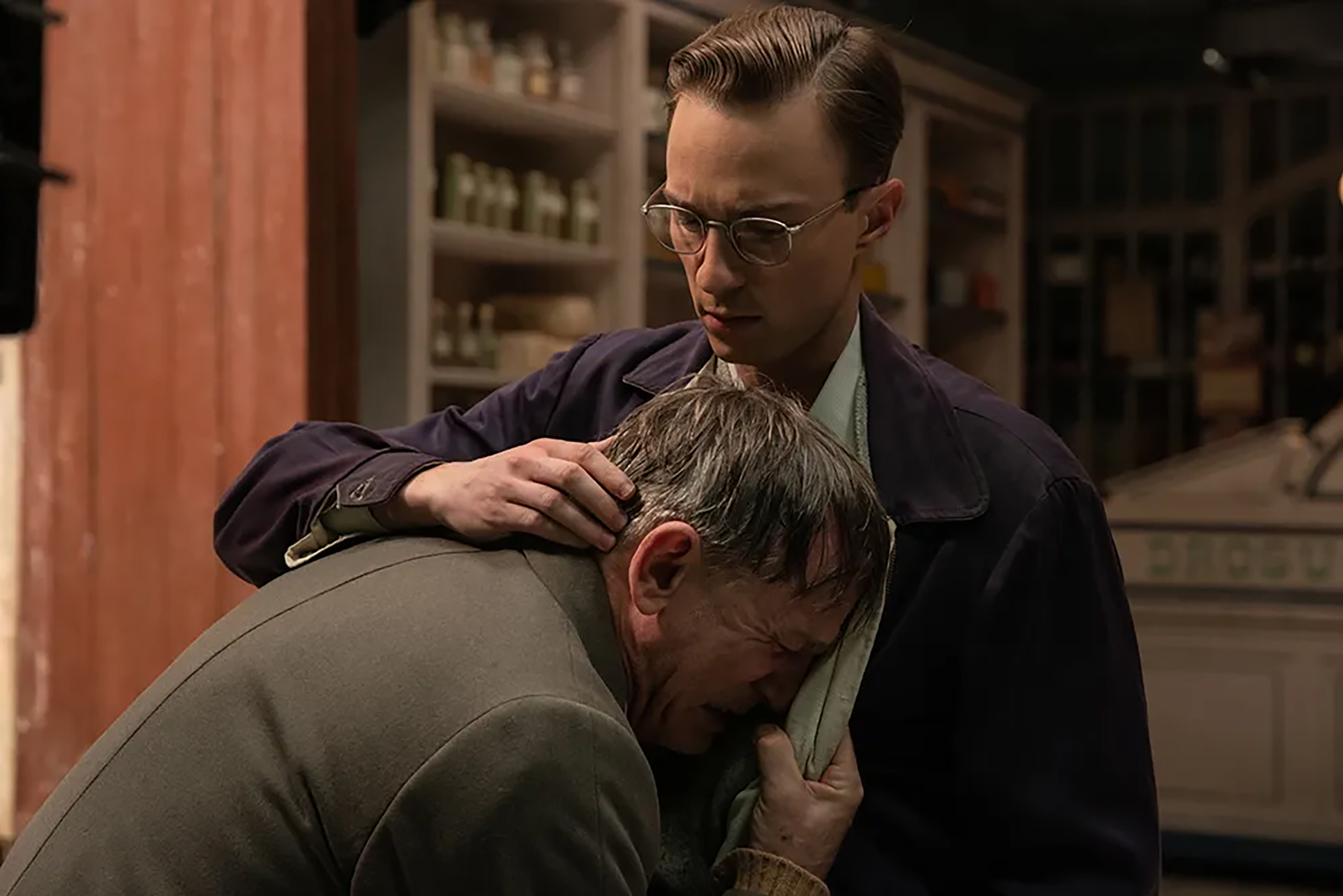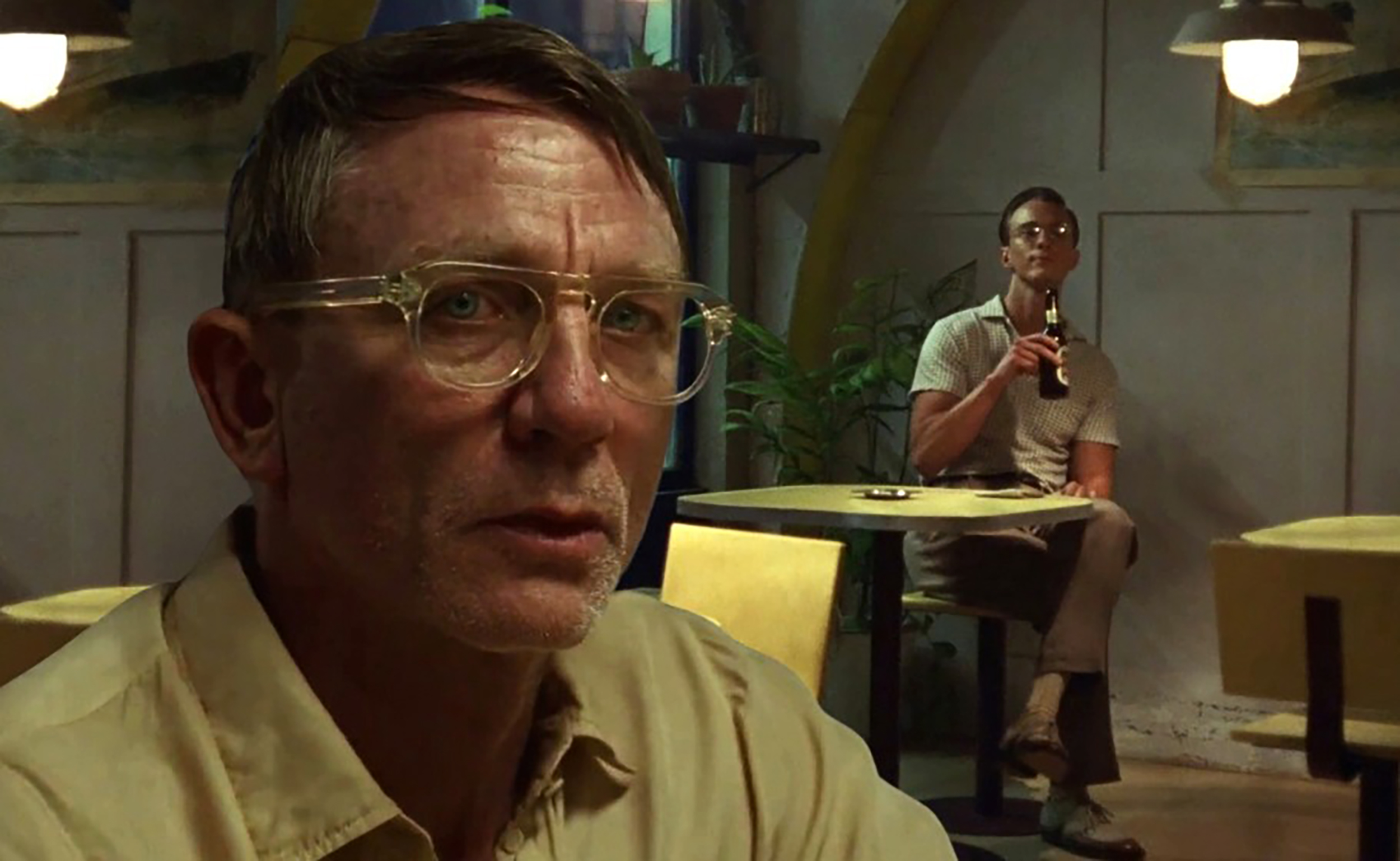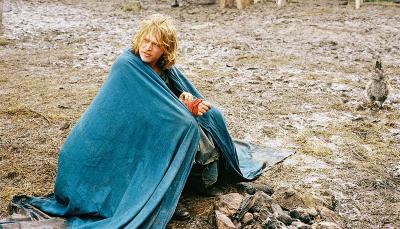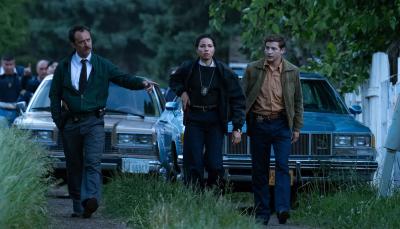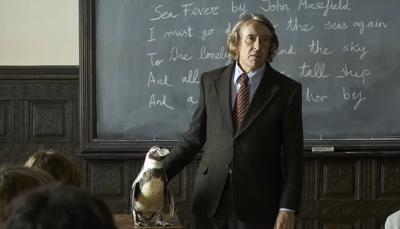Luca Guadagnino's 'Queer' Is Too Distracted to Make Its Point
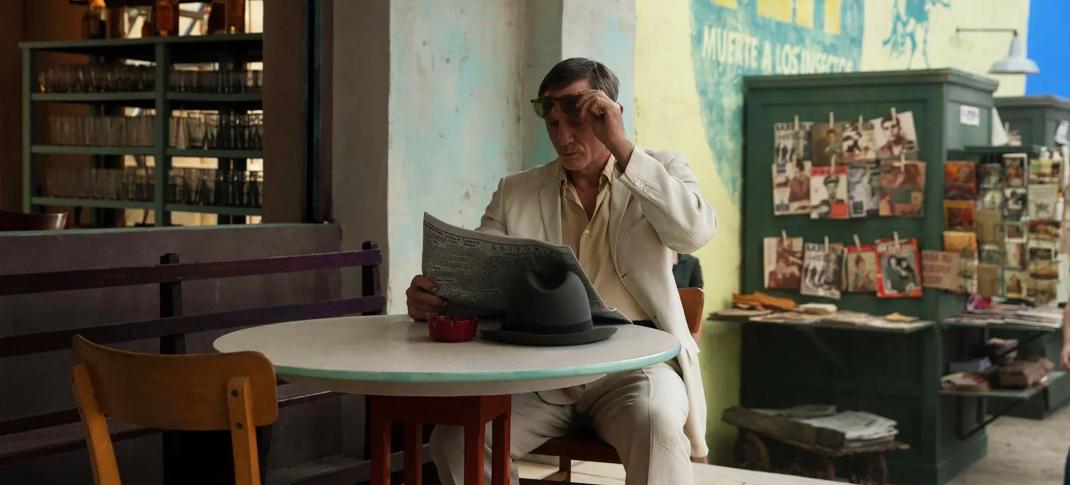
Luca Guadagnino isn't Spielberg-level famous, but cinephiles know the Call Me By Your Name director and his melancholic pathos. Guadagnino shook things up in 2024 with Challengers, ditching his signature fuzzy European landscapes for sharp volleys on a tennis court, splitting his fan base into two camps (pro- and anti-), and I fell into the latter. (I'd had qualms with the peach scene and the pacing of Call Me By Your Name that even Timothée Chalamet's career-defining fireside cry couldn't overcome.) I was ultra-aware of this bias when watching Guadagnino's film Queer, a somewhat return to form, so the reader should be aware of it before deciding if my opinion on Queer is one you want to listen to.
The film is based on William S. Burroughs's semi-autobiographical 1985 novella of the same name. Guadagigno reunited with Challengers scribe Justin Kuritzkes, who penned the screenplay. Daniel Craig leads the fantasia as William Lee, an independently wealthy expat living out his middle age trying to find love with college students and former GIs in 1950s Mexico. Lee is drowning in sour bourbon and heroin until he meets Eugene Allerton (Drew Starkey), who is at first a tantalizing enigma before transforming into the object of all of Lee's unexpressed desires.
Like most Guadagnino films, the plot is secondary to the vibes. In Queer, the plot doesn't seem to be on the priority list at all. That seems fine in the film's first half, as it explores the depths of Lee's loneliness at this point in his life. He still lives in a time when being openly gay could lead to you being killed, though the threat doesn't seem as oppressive in Mexico City as it would be in 1950s America. Still, Lee has to be careful who he shares his affection with, and he's spending the majority of his nights paying for hook-ups rather than finding a meaningful connection.
Then comes Eugene, who sparks a joy in Lee that he hasn't felt in years. When that spark translates only to a passing interest on Eugene's part, Lee goes on a self-destructive spiral that inevitably leads him on a journey for a drug that will increase his telepathic powers. And that's where things start to get weird. Lee convinces Eugene to join him on a trip further south in search of this hallucinogen. Lee thinks the drug will bridge the emotional gap between them. Eugene wants an all-expense paid trip to South America.
The subsequent trip doesn't necessarily bring the two closer together nor give the audience a better understanding of this ill-suited pair. The movie goes from a meditation on longing and sexual identity to a drug-addled fever dream about coming together. Guadagnio's penchant for melancholic voyeurism and Kuritzkes' adeptness at heartbreaking subtext is lost during Lee and Eugene's ayahuasca trip. If Queer were a trip to Willy Wonka's chocolate factory, the latter third of the movie is an extended version of the tunnel of nightmares while floating down the chocolate river.
It's a confusing and frustrating distraction from the story's more straightforward and gratifying part. Queer is at its best in the quiet moments when Lee and Eugene are sitting on a couch together or lying in bed. These are the moments that deliver the tension and romance, even if it is one-sided, that Queer's helmer is known for. Eliminating the drug trip would remove a quintessential part of the Burroughs' influence on the story. Still, it feels out of place with the rest of the narrative and only sends these characters farther apart.
Craig's mannered performance holds the film together. He runs the gamut of emotion as the pretentious Lee. He's audacious in his pursuit of Eugene and delivers what may be Queer's most tender moment immediately following their first hookup. His relief that his affections are requited is palpable. Even if you can't relate to Lee's lifelong suppression of his true identity, his sobs of joy ring so true; he's equally relatable when Eugene's affections wane, lashing out like a teenager ghosted after giving it up at the school dance. Even if you haven't been in Lee's shoes, you've been in the ballpark of rejection, and Craig makes you feel every bit of Lee's heartbreak.
Unfortunately, Queer doesn't give Starkey the same room to show off. He is stunning, and Guadagnino uses his love of the long shot to drive that point home. You understand why Lee goes a bit mad about Eugene. Still, we're not given the same opportunity to get into the struggling young man's head to understand better why he's sometimes willing to entertain Lee's attention and other times he's not. (Though I will concede that sometimes a person wants to nap without being fondled, you know?) So this may not be the jump from teen dramas to Academy Award shortlists for Starkey that Call Me By Your Name was for Chalamet, but that is a problem with the script and not any knock on Starkey's acting ability. Craig is the star here, but Starkey is a worthy canvas for the elder man's performance, an underrated skill.
Queer feels like it had all of the ingredients to make another tentpole in Guadagnino's expanding impressive filmography; however, too many cooks entered the kitchen and over-salted the dish. There's too much here for the film to make a point about anything, whether that's queerness, the era, or the specific relationship between Lee and Eugene. While there are memorable moments, it doesn't feel like something anyone would want to order again.
Queer first premiered at the Venice Film Festival and then put into limited release in the United States in November. It hits U.S. theaters in wide release on Friday, December 13, 2024.

